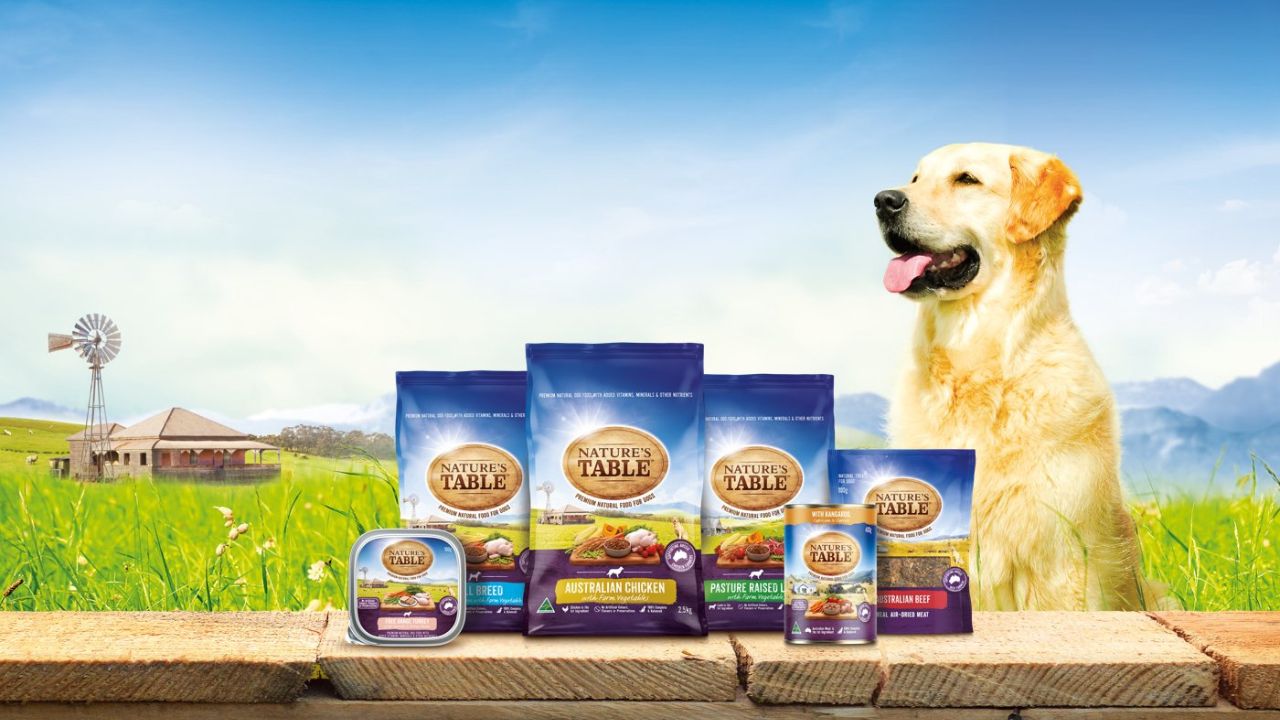Dog Haus Nutrition refers to the science and practice of ensuring dogs receive the right balance of nutrients for optimal health and vitality. It goes beyond merely providing food; it’s about understanding a dog’s unique nutritional requirements.
Proper nutrition is the foundation of a dog’s overall well-being. From maintaining a healthy weight to promoting shiny coats and strong bones, the right nutrition plays a pivotal role in every aspect of a dog’s life.
Key Nutritional Needs for Dogs
In catering to our canine companions’ well-being, it’s imperative to comprehend their fundamental nutritional requirements. Like humans, dogs thrive on a balanced diet that addresses key components essential for optimal health and vitality. Let’s explore these crucial nutritional needs:
Protein: An indispensable building block, protein is vital for muscle development, immune system fortification, and energy production in dogs. Sources like meat, fish, and eggs provide the necessary amino acids for their well-being.
Carbohydrates: Providing a ready energy source, carbohydrates play a significant role in sustaining a dog’s daily activities. Whole grains and vegetables are wholesome carbohydrate sources contributing to a well-rounded canine diet.
Fats: Healthy fats are paramount for a lustrous coat, cognitive function, and overall cellular health in dogs. Incorporating sources such as fish oil and flaxseed ensures they receive the essential fatty acids vital for their vitality.
Vitamins: Dogs, like humans, require a spectrum of vitamins (A, B, D, etc.) for various physiological functions. Ensuring a diverse diet encompassing fruits, vegetables, and quality meats helps fulfil their vitamin needs.
Minerals: Crucial for bone health and other physiological processes, minerals like calcium and phosphorus are indispensable in a dog’s diet. Maintaining an appropriate balance of minerals is key to their overall well-being.
Water: Often underestimated, water is a cornerstone of canine nutrition. It aids digestion, regulates body temperature, and supports various bodily functions. Clean and fresh water should always be available for our furry friends.
Dog Haus Nutrition Principles
Dog Haus Nutrition, dog Haus Nutrition Principles encompass the fundamental guidelines governing the dietary needs of dogs. These principles go beyond mere sustenance, focusing on achieving a well-balanced and tailored diet for canine companions. These principles emphasize the importance of providing a balanced diet, considering age-specific nutritional and breed-specific needs, and addressing health conditions through specialized diets.
It’s a holistic approach to dog nutrition that encourages responsible pet ownership by understanding and meeting the unique dietary needs of our four-legged friends. By adhering to these principles, pet owners can ensure their dogs enjoy delicious meals and thrive with optimal health and vitality.
Choosing the Right Dog Food
Selecting the optimal dog food is critical for pet owners aiming to provide their furry companions with the best nutrition. The process involves carefully considering various factors, including the dog’s age, breed, and specific health requirements. It requires scrutinizing food labels to discern high-quality ingredients while avoiding harmful additives.
The quest for the right dog food extends beyond commercial options, encompassing homemade alternatives for those seeking greater control over their pet’s diet. Essentially, “Choosing the Right Dog Food” involves a thoughtful approach to ensure that every canine receives a balanced, nourishing diet tailored to its unique needs, promoting overall health and well-being.
Common Dog Nutrition Myths
Dispelling widespread misconceptions, “Common Dog Nutrition Myths” navigates through canine dietary needs misunderstandings. This informative content debunks prevalent myths, addressing misguided beliefs about what constitutes a healthy dog diet. From unravelling misconceptions about raw food diets to clarifying the truth behind grain-free trends, this exploration of common myths aims to empower dog owners with accurate information.
Understanding the reality behind these myths ensures that your furry companion receives the best possible nutrition, steering clear of potentially harmful dietary choices. Explore the truth behind common dog nutrition myths for a well-informed approach to your pet’s well-being.
Supplements for Dogs
Meticulously designed to elevate your furry friend’s health. Dog supplements are pivotal in addressing specific nutritional gaps, ensuring your dog thrives at every life stage. These supplements cater to diverse needs, from omega-3 fatty acids promoting a glossy coat to joint-enhancing glucosamine. Delve into a realm where targeted nutrition meets canine vitality, supporting aspects like immune function, cognitive health, and overall vitality.
Consult your veterinarian for personalized advice to understand the importance of a balanced approach. Uncover the secrets of supplementing your dog’s diet wisely, unlocking the key to a healthier, happier companion. Embrace the journey of optimizing your dog’s well-being with the carefully curated world of supplements for dogs.
Obesity in Dogs
Obesity in dogs is a prevalent health concern characterized by an excess accumulation of body fat, impacting the overall well-being of our beloved canine companions. This condition arises from an imbalance between calorie intake and energy expenditure, often from overfeeding, inadequate exercise, or genetic predispositions.
Beyond aesthetic concerns, canine obesity poses serious health risks, including joint problems, diabetes, and cardiovascular issues. Recognizing the signs, such as increased weight, difficulty in movement, or changes in behaviour, is crucial for timely intervention. Responsible pet ownership involves maintaining a healthy weight through portion control, regular exercise, and a balanced diet.
Consulting a veterinarian for personalized guidance ensures proactive measures are taken to prevent and address obesity, promoting a longer and happier life for our furry friends.
Feeding Puppies vs. Adult Dogs
The nuances of feeding puppies versus adult dogs is a pivotal aspect of responsible pet care. The dietary needs of these distinct life stages play a crucial role in your furry companion’s overall health and development. Puppies demand a specialized diet rich in essential nutrients in their early months to support their rapid growth, bone development, and overall vitality.
The emphasis is on high-quality proteins, fats, and minerals tailored to meet the energetic demands of their active lifestyle. As dogs transition into adulthood, their nutritional requirements evolve, necessitating a balance that supports sustained energy, maintains an optimal weight, and addresses specific health considerations. Careful consideration of age-appropriate formulas and portion control becomes imperative.
This guide will explore the differences in nutritional strategies for puppies and adult dogs, providing insights to ensure you make informed choices for your pet’s well-being at every stage of their life.
Special Considerations for Senior Dogs

Addressing the unique needs of ageing canine companions involves understanding and implementing “Special Considerations for Senior Dogs.” This keyword encapsulates the tailored care required for older dogs, emphasizing the importance of adjusting their nutrition, health regimen, and overall lifestyle.
As dogs enter their senior years, factors like declining energy levels, potential health issues, and altered dietary requirements come into play. From adapting their diet to managing age-related conditions, the keyword emphasizes the attentive approach necessary to ensure senior dogs enjoy a comfortable and healthy life.
Providing specialized care for senior dogs involves a combination of veterinary guidance, appropriate nutrition, and an understanding of the ageing process in our beloved furry friends.
Allergies and Food Sensitivities
Dealing with “Allergies and Food Sensitivities” involves navigating a realm where a pet’s well-being hinges on understanding and managing adverse reactions to specific foods. In this context, allergies refer to exaggerated immune responses, while food sensitivities involve a more subtle, delayed reaction.
Recognizing the signs of these conditions, such as itching, digestive issues, or behavioural changes, is crucial for pet owners. Veterinary consultation becomes paramount for precise diagnosis, allowing tailored dietary adjustments. This intricate landscape requires caregivers to be vigilant, employing dietary modifications that avoid triggering elements and ensure a nutritionally complete and balanced meal for their furry companions.
Hydration for Dogs
Dog Haus Nutrition, ensuring proper hydration for dogs is paramount for their overall well-being. Adequate water intake supports digestion, regulates body temperature, and maintains optimal health. Dogs, like humans, rely on hydration to sustain bodily functions, making it crucial for pet owners to monitor and encourage water consumption. In dogs, signs of dehydration include sluggishness, dry gums, and sunken eyes, underscoring the importance of vigilance.
Implementing strategies to promote hydration, such as providing access to clean water at all times, incorporating wet food into their diet, and adding flavourless broth to their water bowl, contributes to a happy and healthy canine companion.
Trends in Dog Nutrition
The evolution of canine care has spurred noteworthy developments in “Trends in Dog Nutrition.” This keyword encapsulates the dynamic shifts and innovations in nourishing our furry companions. The rise of grain-free diets to explore raw food regimens signifies a growing awareness and exploration of alternative dog nutritional approaches.
As pet owners seek more personalized and ethically aligned dietary choices, the trend in dog nutrition reflects an ongoing conversation about the best ways to ensure dogs receive optimal health through their diets. Stay informed about the latest trends to make educated decisions about your dog’s nutrition journey.
Reviewing Popular Dog Food Brands

Delving into the realm of renowned dog food labels involves meticulously exploring the industry’s top players. By scrutinizing popular dog food brands, pet owners gain valuable insights into the nutritional content and overall quality of these products. Analyzing the reputations of these brands provides a solid foundation for making informed decisions regarding their furry companions’ diets.
This process ensures pet owners know to select a dog food that aligns with their standards for excellence in nutrition and care. Understanding the nuances of each brand’s offerings empowers dog owners to prioritize their pets’ well-being through well-informed choices.
> Analyzing Well-Known Canine Cuisine Labels
> Exploring Renowned Dog Food Brands
> Unveiling Notable Names in Dog Food Evaluation
> Examining Trusted Canine Nutrition Providers
> Assessing Popular Dog Food Manufacturers
> Unraveling the Merits of Common Dog Food Labels
> Investigating Household Dog Food Brands
> Delving into the Reputation of Familiar Canine Nutrition Names
> Surveying Esteemed Dog Food Labels
> Navigating the Landscape of Widely Recognized Dog Food Brands
> Exploring the Merits of Well-Established Canine Nutrition Companies
> Unveiling the Popularity of Household Dog Food Names
> Diving into the Assessment of Frequently Purchased Dog Food Brands
> Scrutinizing the Appeal and Nutrition Offered by Widely Used Dog Food Manufacturers
> Evaluating the Credibility and Effectiveness of Popular Canine Nutrition Brands
> To Chi Haus Dog
Dog-Haus, 291 g
Calories: 590
Carbs: 59g
Fat: 31g
Protein: 22g
590
> Haus Dogs: Cowboy
Dog Haus, 259 grams
Calories: 790
Carbs: 69g
Fat: 45g
Protein: 29g
790
> Haus Burgers: Cheeseburger
Dog Haus, 437 grams
Calories: 910
Carbs: 76g
Fat: 53g
Protein: 34g
910
> Haus Slaw Side
Dog Haus, 1 Serving
Calories: 190
Carbs: 10g
Fat: 16g
Protein: 2g
190
> The Fonz
Dog Haus, 277 grams
Calories: 730
Carbs: 54g
Fat: 39g
Protein: 42g
730
> Mensch
Dog Haus, 1 burger
Calories: 950
Carbs: 74g
Fat: 54g
Protein: 44g
950
> Friedburger
Dog Haus, 1 Burger
Calories: 1290
Carbs: 0g
Fat: 90g
Protein: 0g
1290
> Downtown Dog
Dog Haus Noho, 1 dog and bun (287g)
Calories: 830
Carbs: 58g
Fat: 55g
Protein: 25g
830
> Vegan Hot Dog
Dog Haus, 224 g
Calories: 600
Carbs: 49g
Fat: 36g
Protein: 20g
600
> Side of Haus Chili
Dog Haus, 191 g
Calories: 380
Carbs: 11g
Fat: 28g
Protein: 19g
380
FAQ
Does Der Dog Haus Have a Menu?
The restaurant information, including the Der Dog Haus menu items and prices, may have been modified since the last website update. You are free to download the Der Dog Haus menu files.
What is a Dog House?
DOG HAUS CREATES HANDCRAFTED HORMONE AND ANTIBIOTIC-FREE HOT DOGS, SAUSAGES, BURGERS AND CHICKEN SANDWICHES, ALL SERVED ON KING’S HAWAIIAN ROLLS.
What is the Nutritional Value of Dog Food?
Dog Haus Nutrition, this food’s guaranteed analysis comprises 13.0% crude fat, 26.0% crude protein, and a maximum of 4.5% crude fibre. The only life stage for which this food is not designed is for growing large dogs (70 pounds or more), according to the AAFCO. Some dogs reportedly eat around the vegetables.
What is Hill’s Pet Nutrition?
At its annual Hill’s Global Symposium, Hill’s Pet Nutrition—a leader in science-led nutrition—announced various initiatives to sustain its support for the veterinary field. These initiatives included the introduction of a comprehensive and centralized continuing education platform and a significant donation to the Veterinary Hope Foundation.

